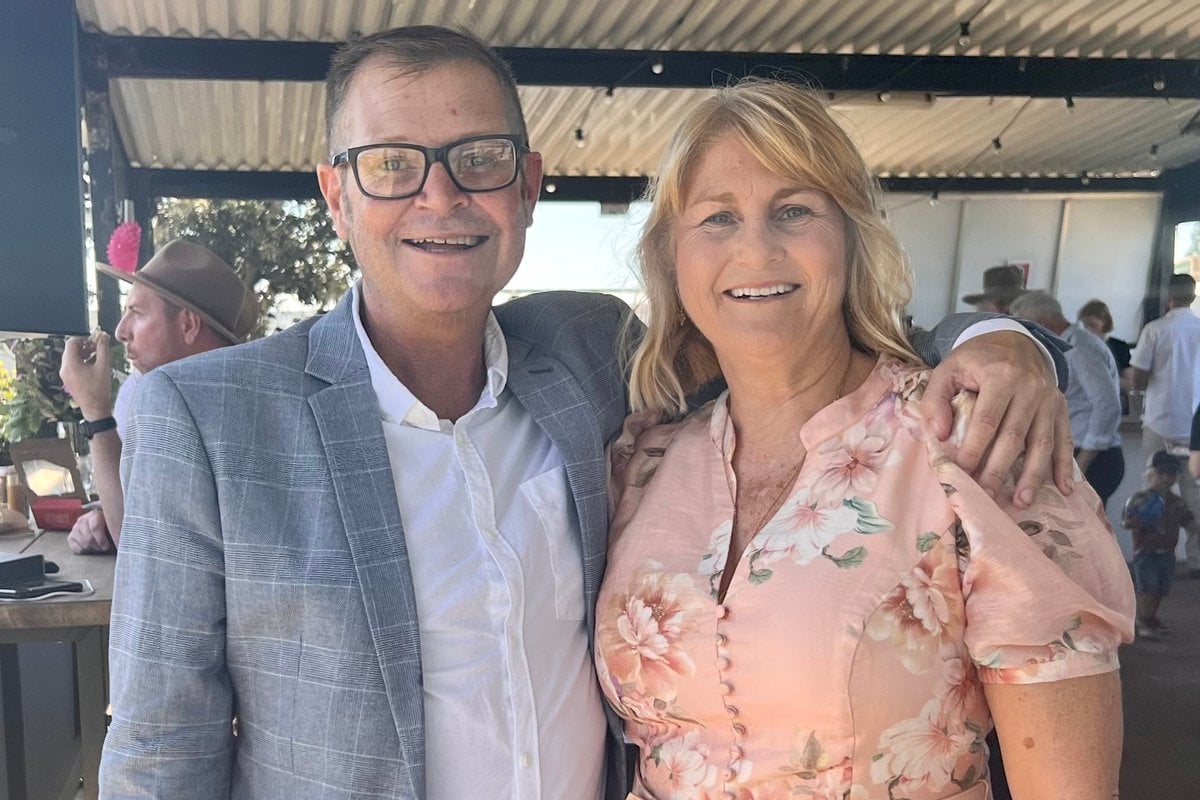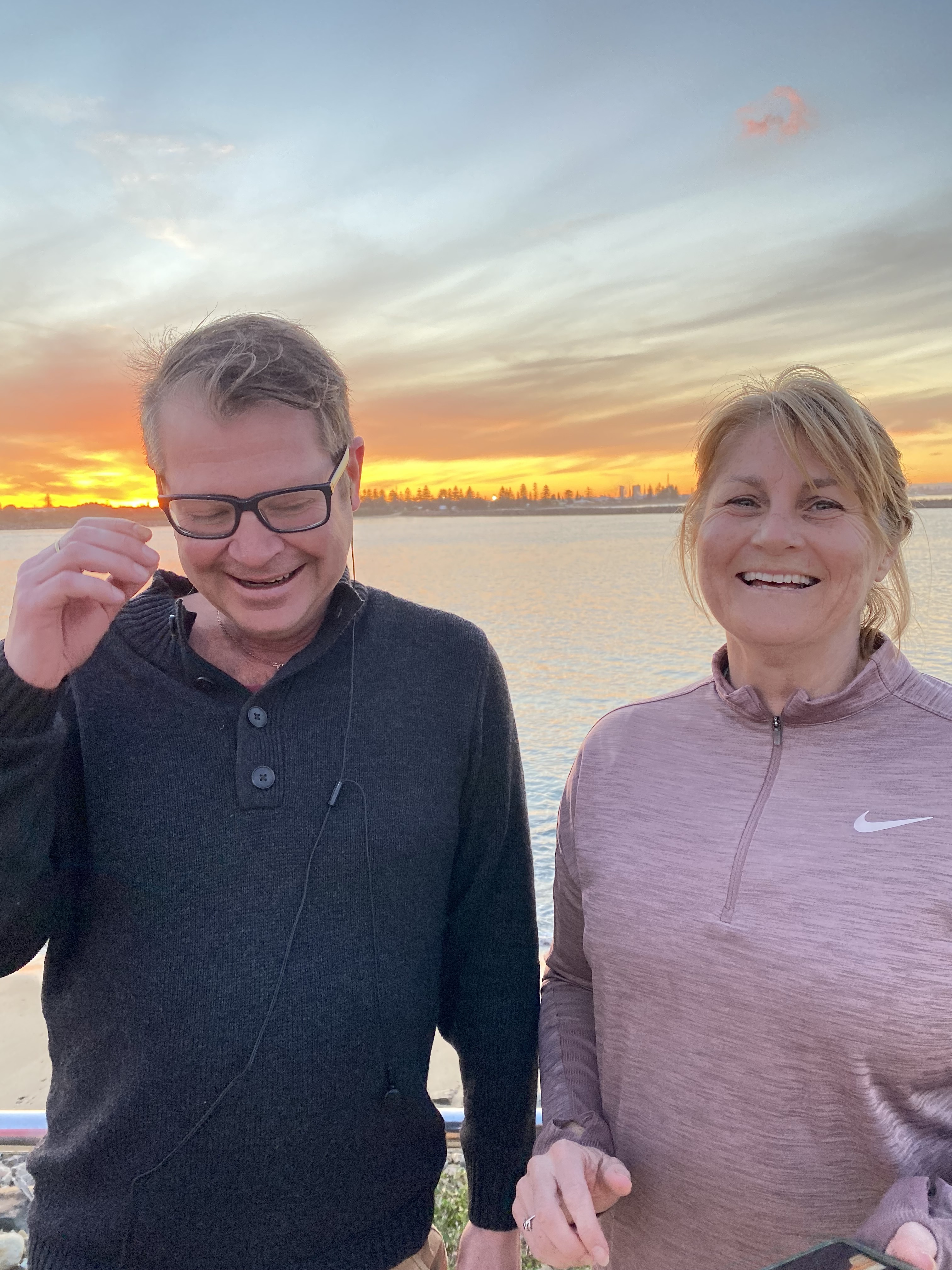
Content warning: This story includes depictions of homophobic violence that may be distressing to some readers.
On Monday we laid to rest my beloved younger brother Tim. And while his death certificate will list the cause of his sudden passing as liver disease, I firmly believe that homophobia killed my brother.
Tim was clever, creative, kind and so much fun. And he was gay. But it certainly didn’t define him. It was just part of who he was, like his blue eyes, cheeky grin and absolute disregard for following rules.
Everything changed for Tim during his high school years when he realised it was impossible to fit into the 'footy-head' culture of Dubbo in the 1980s.
From his teenage years onwards he suffered homophobia, in the form of taunts, bullying and worse.
As an adult, he moved to Melbourne and Sydney, which were more accepting but the damage had been done: He felt he was 'wrong' somehow and that he didn’t fit in.
Watch: Queer Eye's Karamo Brown on his blended family. Post continues below.
And no wonder, because society kept reinforcing that message.
International Day against Homophobia, Biphobia, Intersexism and Transphobia (IDAHOBIT) is held on May 17, because it marks the World Health Assembly’s decision to remove homosexuality from the International Classification of Diseases. Before 1990, homosexuality was classified as a mental illness.
Only recently, Tim told me that it was common for him to be walking down the street in Newcastle when someone would wind down their car window to shout “F**king faggot” at him. For walking. For existing.
While on public transport, people would verbally abuse him, causing him to guess when it might end or if it would turn violent. He’d get off the bus, shaking and distressed, well before his destination.
Two years ago, he was walking past a pub at about 7pm, when four men, dressed in office wear, walked out, saw him and verbally abused him. He had enough, so he retaliated and they set upon him, beating him severely, breaking his ribs and glasses.
Tim always wore a battered leather satchel slung over his shoulder. A while ago, I noticed that he was no longer wearing it. He told me, “Yeah I got sick of people calling me a faggot, so I got rid of it”.
He was made to feel that he didn’t belong. That he was less than others.
Homophobia led to self-loathing that he numbed with drugs and alcohol.
He was a highly regarded professional in the hospitality and event management industry, but when the pain got too much, he just blocked it all out.
Listen to Mamamia's daily podcast The Quicky. Post continues below.
While he didn’t hide who he was, he certainly didn’t ever celebrate it.
He wouldn’t have waved a rainbow flag or marched in a parade. He was out – but definitely not proud.
He was deeply loved by his family and friends and I will miss him with all of my heart.
If you wonder why we have IDAHOBIT, please think of my beautiful brother and my broken heart.
It’s the flip-side of Pride. While Pride and Mardi Gras are about celebrating diversity, IDAHOBIT says that it’s not all flags and parades. It’s recognising the hatred, aggression and abuse members of the LGBTQIA+ community are subjected to on a far too regular basis.
It recognises the bravery it takes to come out to your workmates. Sixty-eight percent of LGBTQIA+ employees in Australia are not out to everyone at work.
And if you wouldn’t dream of abusing anyone on a bus (and I like to think that’s most of us) it’s important to recognise that it IS happening, every day, in so many ways.
If you are part of the rainbow community, please tap into the support that’s available to you and know you are not alone.
 Maree with younger brother Tim. Image: Supplied.
Maree with younger brother Tim. Image: Supplied.
Tim’s funeral broke my heart.
Dying at age 48 – he got off the bus well before his journey was over.
I will miss my gorgeous little brother every day but I don’t blame the bottle.
I blame the homophobia.
The first IDAHOBIT was held in 2005 and is today acknowledged by millions of people globally. To find out more about IDAHOBIT and how you can help, visit their website.
If you or someone you know is struggling with mental health, please reach out to SANE Australia on 1800 187 263.
Feature Image: Supplied.
Stories to indulge in, sent to your inbox every weekend.


Top Comments